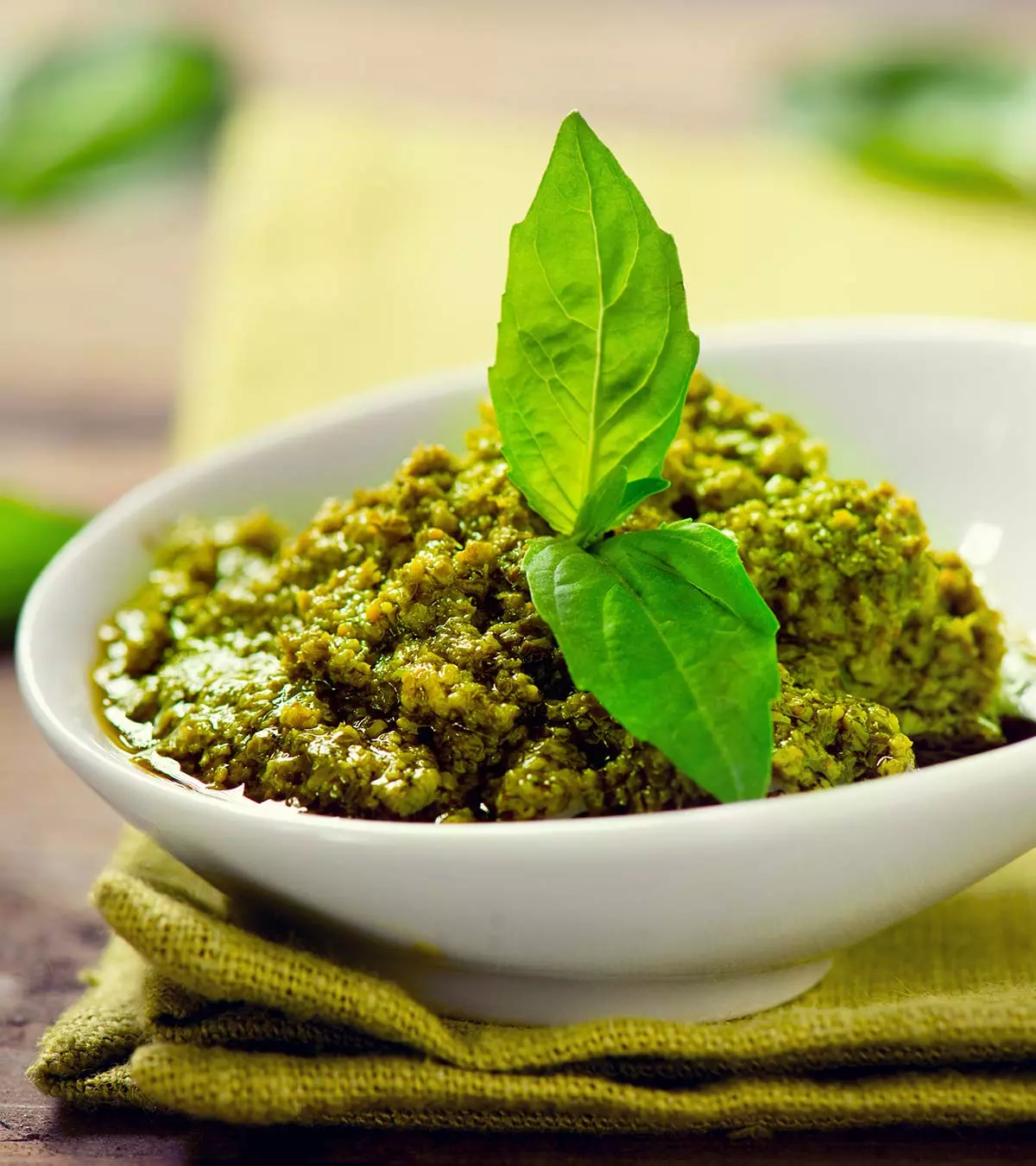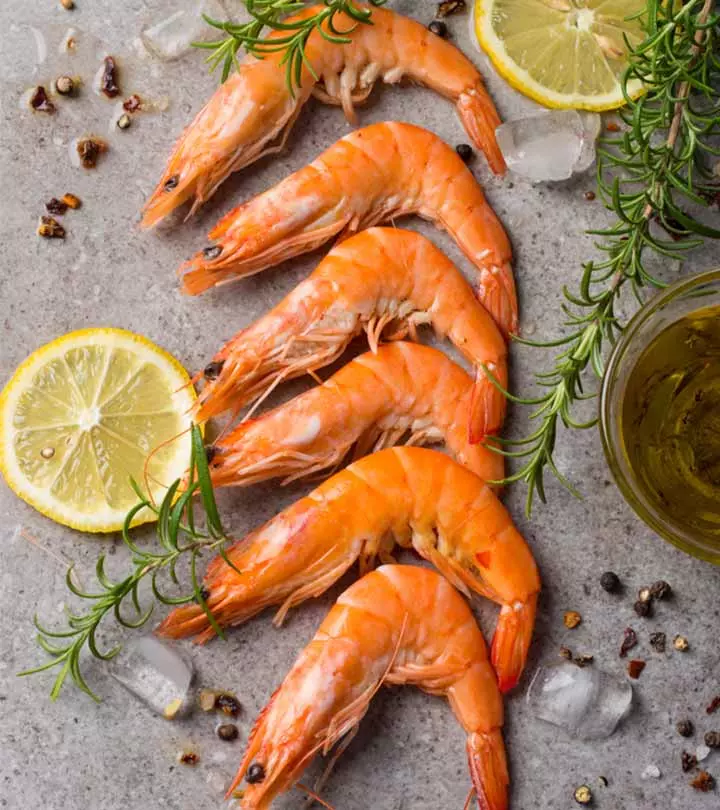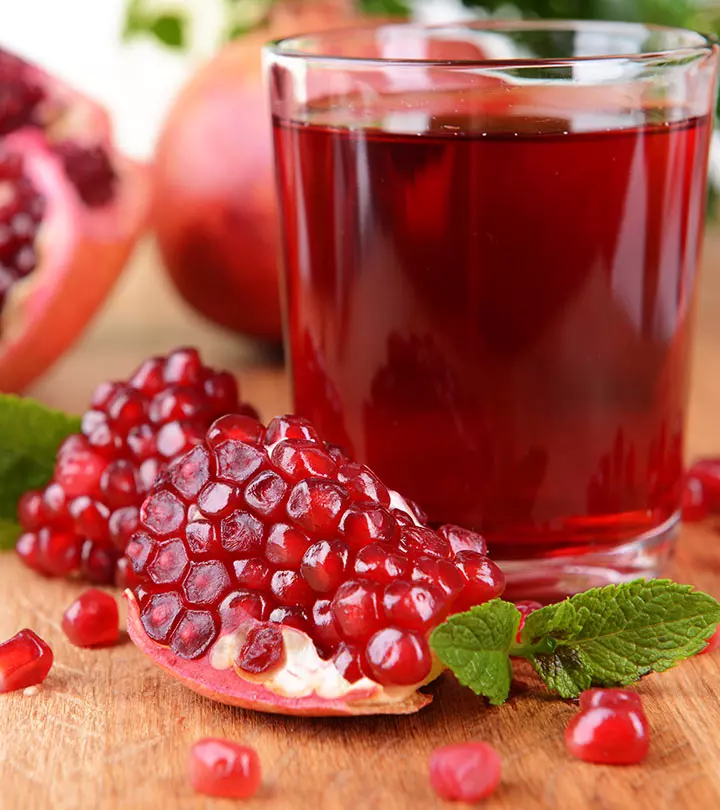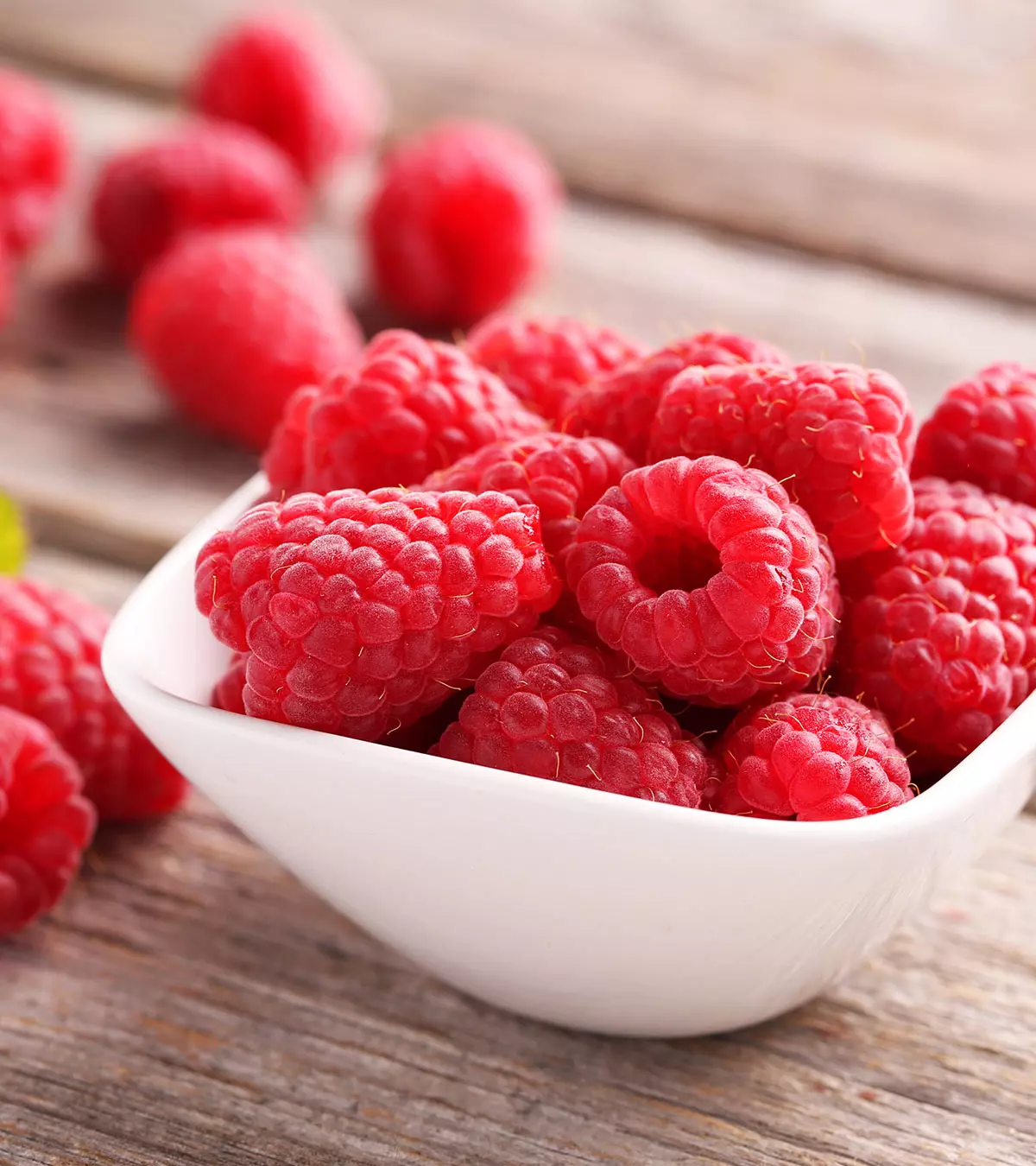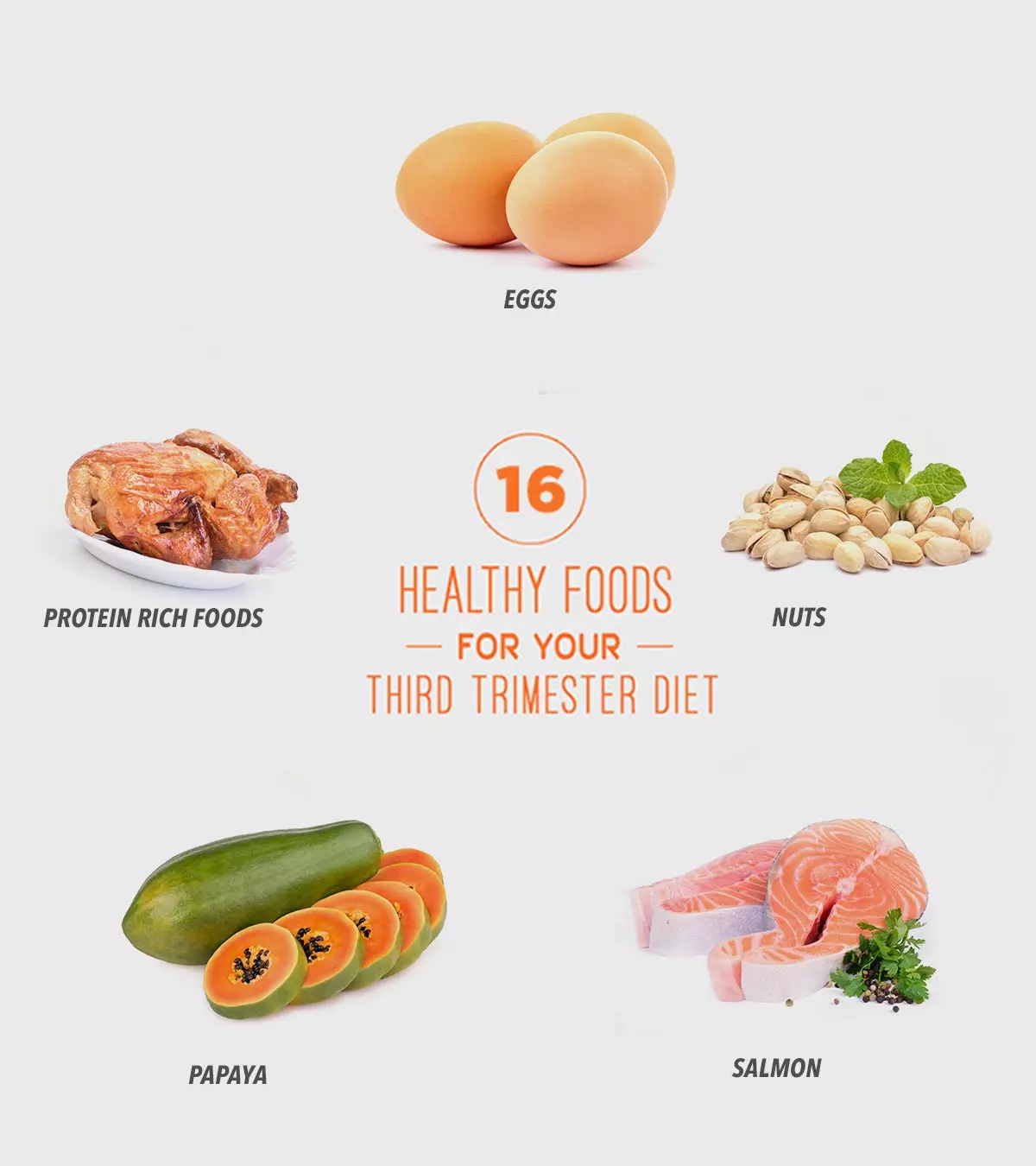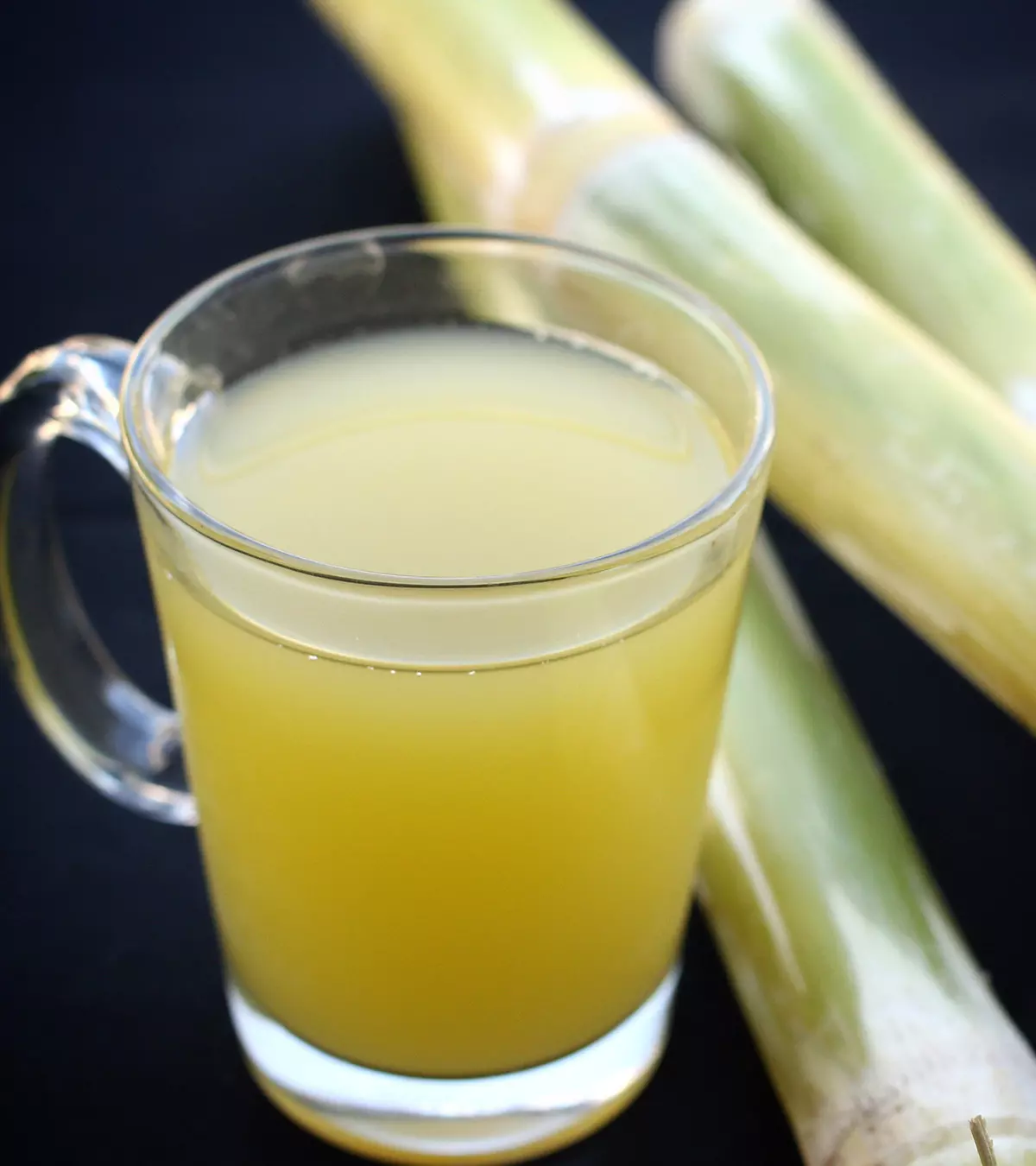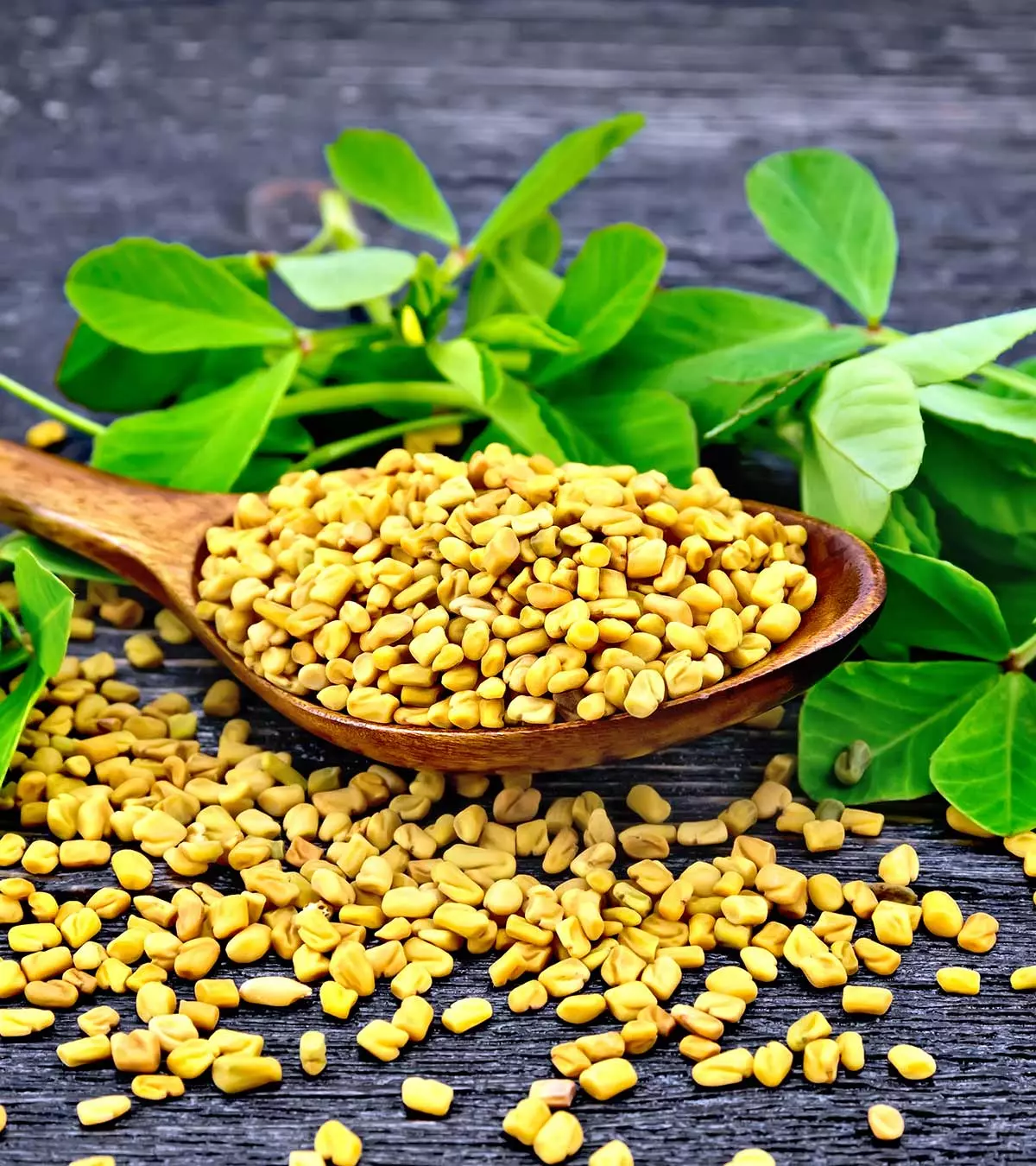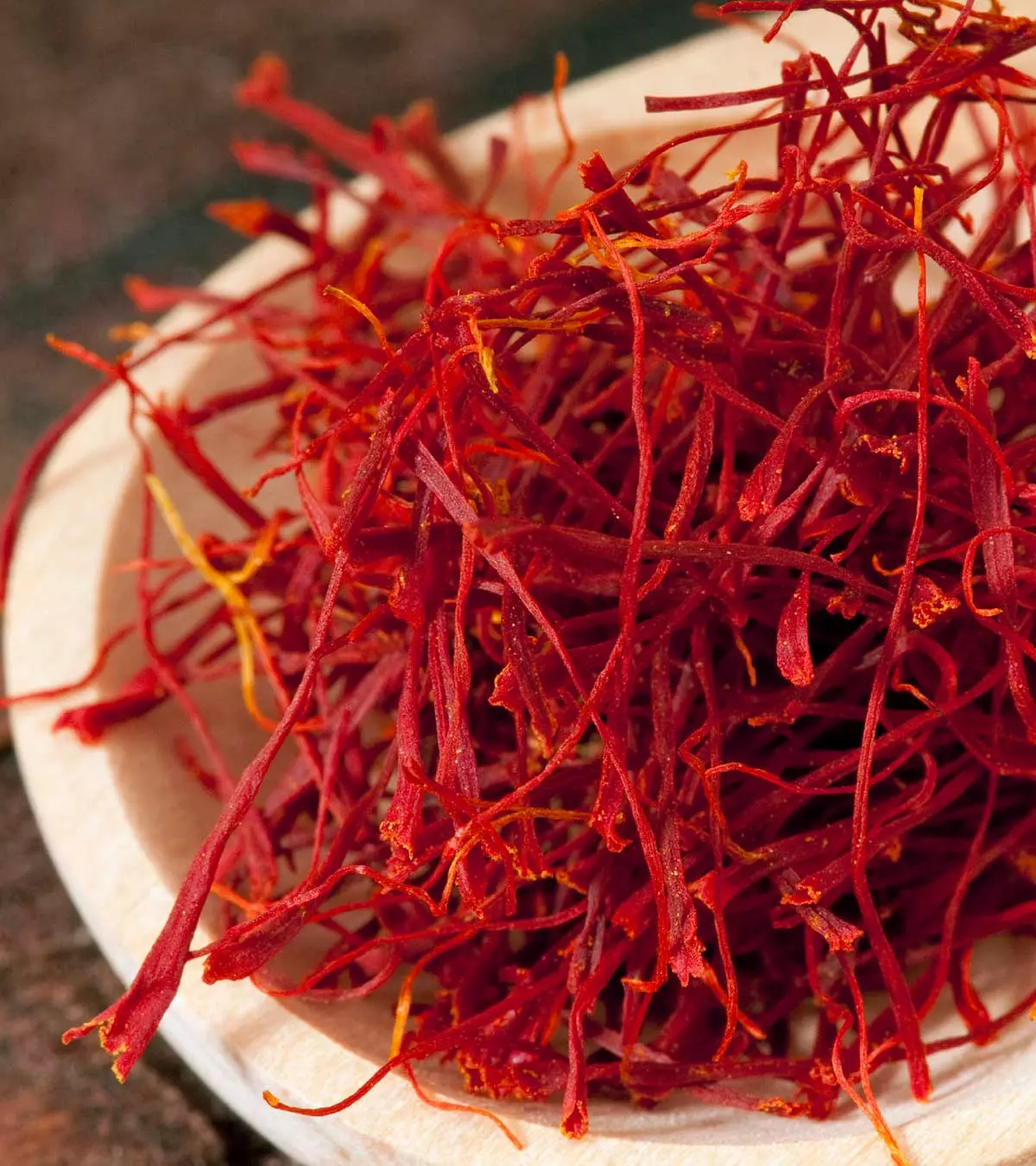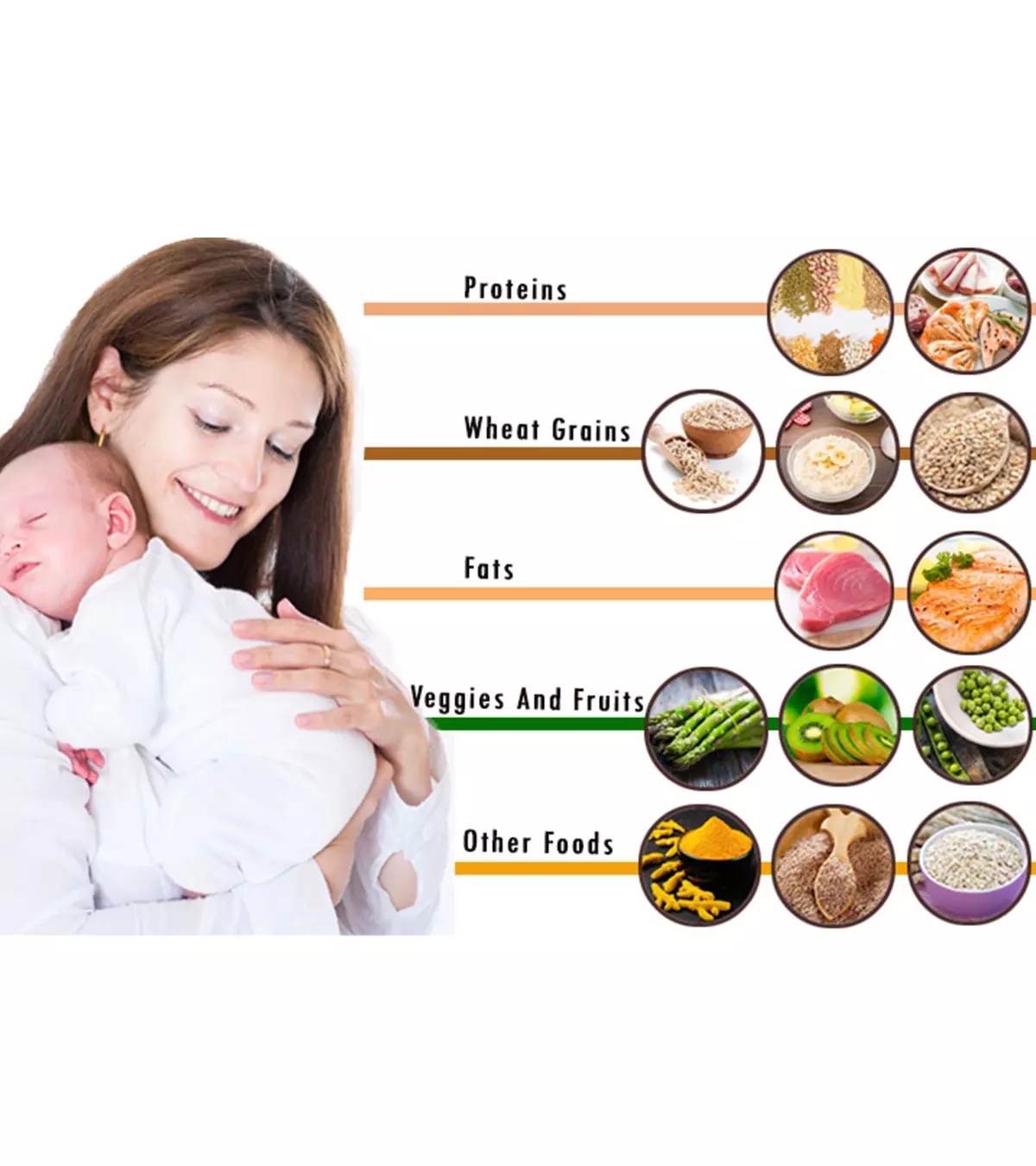
Image: Shutterstock
Pregnancy and childbirth may take a toll on the body. However, new mothers try their best to do everything in their power to ensure their baby is healthy and well-nourished. One way to ensure this is by consuming a proper diet after delivery.

While you may have been extra careful about everything you consumed and read the label of each food item while you were pregnant, it does not end with delivery. Breastfeeding utilizes energy and nutrients from your body; therefore, you should be extra-careful about your postpartum nutrition and incorporate healthy eating habits. Moreover, a well-balanced and healthy diet helps prevent illnesses in new mothers. It also helps in breast milk production and recovering from the trauma of childbirth.
Read this article to learn about some healthy foods you should consider adding to your diet to help keep yourself and the baby healthy and energetic.
Key Pointers
- New mothers require a proper postpartum diet for optimal health.
- Breastfeeding necessitates energy and nutrient-rich food, while a balanced diet helps with recovery.
- Focus on consuming healthy and nutritious foods after delivery, including proteins, whole grains, healthy fats, fruits, and vegetables, and choose organic produce.
- During postpartum and lactation periods, certain foods can be particularly beneficial, such as turmeric, dry ginger powder, oats, and carom seeds.
- Avoid processed and packaged foods, cured meats, packaged snacks, ready-to-make meals, fast food, sugary drinks, excessive alcohol, caffeine, and high-mercury fish.
Foods to Include in Diet After Delivery
Ideally, following the birth of your baby, every food that you choose should be healthy and nutritious to make up for the strenuous job of pregnancy and childbirth. In addition to food, one must also give due attention to everyday hydration and consume water as per the recommended amount.
Claudia Vidor, a mother and nutritionist, candidly recounts her past neglect of healthy eating and its impact on her postpartum recovery. She states, “12 hours after giving birth, I went to town with black teas, chocolate cake, lots and lots of raw salad, barely cooked eggs, and heaps of coffee. I wanted to enjoy all the things I couldn’t touch during my pregnancy.
“Did it serve me? Not at all. It took me the longest time to heal; I had problems sleeping, and I couldn’t rely on my energy level because of its unpredictability as it went from 100 to crushing in the shortest amount of time. That’s when I put my nutritionist hat on, and started focusing on nourishment instead of momentarily pleasure (i).”
Here are five healthy food options containing the essential macronutrients and micronutrients for mothers:
1. Proteins:
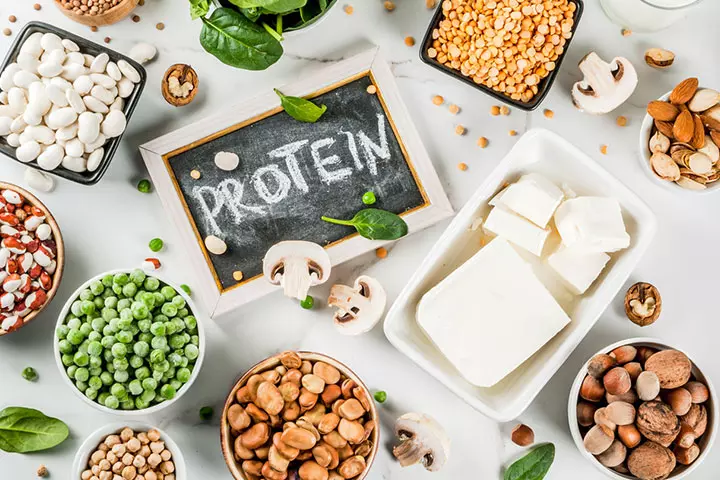
According to the American Pregnancy Association, postpartum moms need around 25 grams of protein in addition to their daily requirements (1). Adding more protein foods to your diet is therefore a must during this period.
It is a good idea to add more dairy products to your diet as they don’t just give you your required proteins but also provide your body with the extra calcium you need. If you’re a vegan, you can add more protein-rich foods such as pulses, seeds, and legumes to your diet to get your protein content while non-vegetarians can easily consume lean meats and poultry foods. (1).
2. Whole Grains:
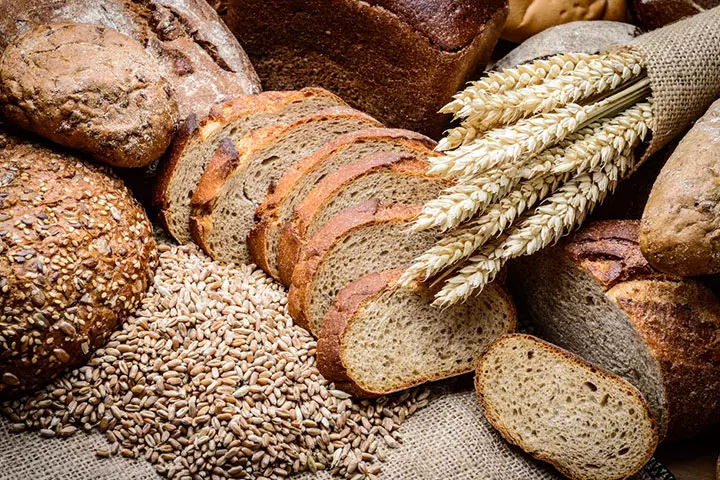
Carbohydrates are the quickest source of energy for you during this crucial period in your life, and you will now need a lot of energy to produce milk for your newborn. While simple sugars may seem like a good option when it comes to getting energy, they are not reliable. They tend to raise blood sugar levels fast and drop them down suddenly, which could leave you feeling tired and weak.
Complex carbohydrates present in whole grains like quinoa, brown rice, barley, oatmeal, and bulgur are fiber-rich food sources and are a good option. They get absorbed more slowly and stabilize your blood sugar levels, providing you energy without getting you the extra calories like in sugary foods (2).
3. Fats:
Fats make for a very important part of your diet following childbirth, but you have to make sure you take the right kind of fats. Fatty fish contains omega-3 fatty acids, which will boost the brain development of your baby.
So make sure you get your two or three servings of catfish, tuna, salmon or Pollock every week, preferably the quality-canned variety so as to cut down the risk of any toxicity. It is also a good time to switch to healthier cooking oils like olive oil during the postpartum period if you haven’t done that already (3) (4).
4. Veggies and Fruits:
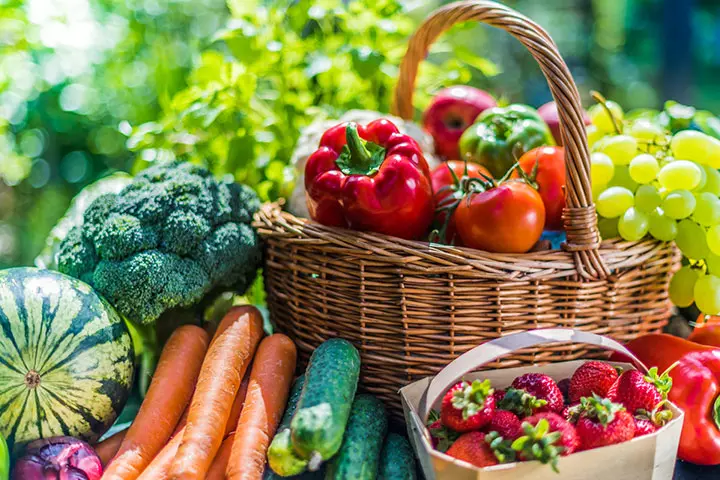
This one obviously doesn’t come as a surprise. Veggies and fruits are the best choice when it comes to a post-pregnancy diet. They are loaded with fiber that helps promote digestive health and prevents constipation. They also give the body a good supply of important vitamins and minerals, which is great if you’re breastfeeding your baby (4).
Veggies and fruits also supply healthy carbs that your body needs after delivery and will be immensely helpful if you’ve had a C-section delivery or are taking narcotics for pain relief. Following a proper diet after C-section delivery is crucial for your recovery and overall health. Make sure you pick organic foods at this point of time since they contain no pesticides and chemical additives as opposed to other foods, which are usually chemically ripened (5).
If you do not have access to organic produce, make sure you avoid spinach, apples, strawberries, celery, grapes, and peaches as they tend to contain high levels of pesticides. Stick to onions, pineapple, avocado, kiwi, mangoes, eggplant, sweet peas, asparagus, sweet corn, and cantaloupe- they have the least amounts of pesticide residue.
 Quick tip
Quick tip5. Other Foods:
Apart from these, many other foods are great when it comes to providing you optimum nutrition during your postpartum and lactation period (1) (6) (7).
- Turmeric: rich in potassium, vitamin B6, vitamin C and manganese
- Dry Ginger Powder: packed with selenium, fiber, vitamin E and magnesium
- Oats: an excellent source of iron, fiber, calcium, carbs and proteins.
- Carom seeds: amazing antioxidant properties that cleanse the uterus.
Apart from the foods outlined above, sometimes doctors may also recommend taking postnatal vitamins to meet your daily required intake. Furthermore, after delivery, you may want to lose weight that you had gained during pregnancy. However, it’s essential to approach weight loss gradually. Consuming a well-balanced diet will ensure a safer postnatal weight loss journey. You can also incorporate postnatal exercise into your regimen after the consultation from your gynecologist (4). Consulting with a healthcare provider or nutritionist can help you create a safe and effective weight loss plan tailored to your postpartum health needs.
Foods To Avoid During Post-Delivery
Now that we’ve focused on what are the foods to eat after delivery, here are some foods that are a strict no-no during a post-pregnancy diet; for obvious reasons.
Processed and packaged foods are bad for you at any given point in time, and if you’ve just delivered a baby, your body is actually lacking out on a lot of nutrients, and given that you’re breastfeeding too, your body is losing out on a lot of essentials it needs for its survival; gobbling down a bowl of two-minute noodles isn’t exactly the kind of thing your body needs.
Make sure you keep away from all these foods after delivery (8).
- Processed, cured meats
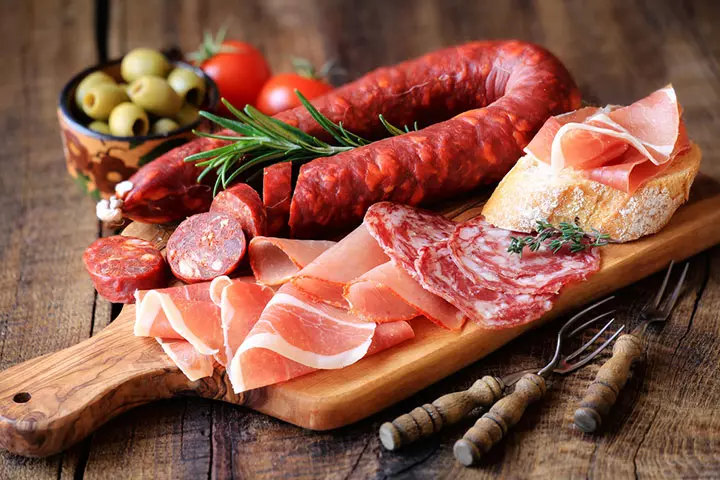
 Health fact
Health fact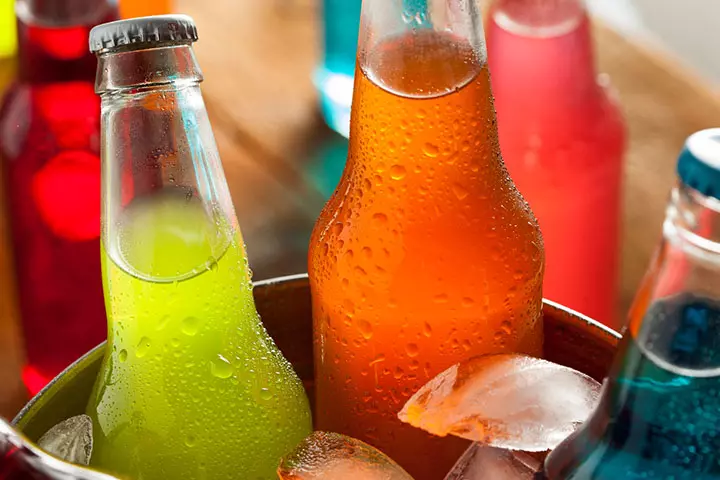
All these foods are packed with unhealthy ingredients, and they’ll actually harm your body in the long run. What’s more, your baby is now at a very tender age and is more vulnerable to anything that could cause them harm.
Frequently Asked Questions
1. When can I start dieting after delivery?
You should wait for at least two months or until your milk supply has stabilized before considering cutting down on calories from food (9). It is best to consult your doctor before you begin dieting to not lose out on vital nutrients.
2. What is the best food to eat after giving birth?
Experts recommend a balanced diet for postpartum mothers. It means you must have foods rich in all the essential nutrient sources such as protein, antioxidants, complex carbohydrates, fiber, vitamins, minerals, healthy fats, and iron. Exploring healthy recipes for breastfeeding can make it easier to incorporate these nutrients into your daily meals. Drinking adequate fluids is equally important to ensure a healthy milk supply (10).
3. How can I plan and prepare meals when I have limited time and energy?
New moms often face challenges that make meal planning and preparation cumbersome. However, employing certain tips can help. For instance, plan your meals for a specific day or time each week. Compile a list of go-to recipes that require minimal preparation. For instance, breakfast could be oatmeal with fruits and nuts, while lunch might include a grilled chicken salad with quinoa. Dinner can feature baked salmon with steamed vegetables, and snacks like Greek yogurt with honey offer a convenient energy boost. Use convenience foods, such as pre-cut fruits and vegetables, pre-cooked grains, or canned beans, to reduce meal preparation time. Finally, whatever foods and dishes you consume, ensure they are healthy and well-balanced (11).
4. Should I be taking any supplements after delivery to support my diet?
Breastfeeding raises a mother’s nutritional needs. Hence, it is likely that even if she consumes a well-balanced diet, she would need supplementation to ensure optimum nourishment. Nevertheless, you should consult your healthcare provider to get guidance about the supplements you should take and their specific dosages based on your requirements.
5. How much water should I be drinking while breastfeeding?
The Academy of Nutrition and Dietetics, nursing moms should drink at least 16 cups of water daily. Hydrating foods, beverages, and water can meet your water needs. Proper hydration may also support milk production and can help maintain energy levels throughout the day. Still, experts advise you to drink one large cup of water before breastfeeding your baby to ensure you stay optimally hydrated (12).
6. Should I be eating differently if I had gestational diabetes during pregnancy?
If you had gestational diabetes during pregnancy, you must take care of your dietary intake even after delivery. Consult a nutrition expert to get a customized diet based on your needs. Follow the diet religiously and ensure you are eating well-balanced meals and snacks. Stay optimally hydrated and indulge in physical activities that can help you lose pregnancy weight and maintain overall well-being (13).
A mother’s responsibility does not end with childbirth. After delivery, she breastfeeds and takes care of the baby. To accomplish this, she needs to be healthy and energetic. Therefore, it is imperative to choose your lactation diet with caution. Include healthy foods such as whole grains, pulses, seeds, fat sources, and different kinds of fruits and vegetables. Add variety to your meals to ensure you get all types of nutrition. Stay away from processed foods, sugary drinks, and fast food takeaways, which provide little nutrition and may even be unhealthy. Referring to a list of food for breastfeeding mothers can help guide you in making the best dietary choices. To ensure proper recovery and support for breastfeeding, it’s best to work with a healthcare provider or nutritionist to develop a tailored plan.
Infographic: Foods To Include In Diet After Delivery
A varied postpartum diet that includes nutrient-rich foods can help the new mother recover faster and provide the necessary nutrition for her baby. This infographic outlines some foods to be included in a postpartum diet. Make a note of these foods and take your doctor’s/dietician’s advice if you are apprehensive about consuming any.
Some thing wrong with infographic shortcode. please verify shortcode syntax
Illustration: Healthy Food Options For New Moms Diet After Delivery

Image: Dall·E/MomJunction Design Team
Elevate your postpartum recovery with a well-balanced diet rich in nutrients. The video below shares one of the best tips for better postpartum recovery. Consider eating a balanced diet with plenty of nutrients!
Personal Experience: Source
MomJunction articles include first-hand experiences to provide you with better insights through real-life narratives. Here are the sources of personal accounts referenced in this article.
i. The best food for a postpartum mum.https://claudiavidor.medium.com/the-best-food-for-a-postpartum-mum-5c098be0bd46
References
- A Faster Postpartum Recovery.
https://americanpregnancy.org/healthy-pregnancy/first-year-of-life/postpartum-recovery-2/ - Top 10 superfoods for breastfeeding moms.
https://news.sanfordhealth.org/womens/top-10-breastfeeding-superfoods/ - Pregnant or Breastfeeding? Nutrients You Need.
https://kidshealth.org/en/parents/moms-nutrients.html - Postpartum Diet and Exercise.
https://helpmegrowwa.org/?ref=parenthelp123.org - Pregnancy Diet – Why You Should Consider Organic Foods.
https://www.sitarambhartia.org/blog/maternity/pregnancy-diet-organic-food/ - Ginger root raw.
https://fdc.nal.usda.gov/fdc-app.html#/food-details/169231/nutrients - Spices turmeric ground.
https://fdc.nal.usda.gov/fdc-app.html#/food-details/172231/nutrients - Foods to Eat While Breastfeeding.
https://health.clevelandclinic.org/breastfeeding-diet - Losing weight after pregnancy.
https://medlineplus.gov/ency/patientinstructions/000586.htm - What to Eat Right After Giving Birth.
https://www.lamaze.org/Giving-Birth-with-Confidence/GBWC-Post/what-to-eat-right-after-giving-birth-1 - Eating Right Before, During and After Pregnancy
https://www.queens.org/eating-right-before-during-and-after-pregnancy/ - Nursing Your Baby What You Eat and Drink Matters
https://www.eatright.org/health/pregnancy/breastfeeding-and-formula/nursing-your-baby-what-you-eat-and-drink-matters#:~:text=Keep%20Hydrated,time%20you%20breastfeed%20your%20baby - Gestational diabetes diet
https://medlineplus.gov/ency/article/007430.htm
Community Experiences
Join the conversation and become a part of our nurturing community! Share your stories, experiences, and insights to connect with fellow parents.
Read full bio of Dr. Miguel Angel Razo Osorio
Read full bio of Anshuman Mohapatra
Read full bio of Swati Patwal
Read full bio of Dr. Joyani Das






